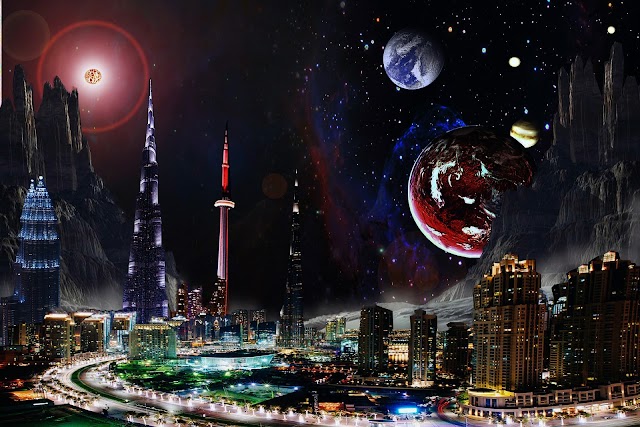Recently, I came across a video in YouTube about meat analogue (in simple words veg-meat) and how can it change the planet, the link to which will be down at the end of the article. I was immensely inspired to know more about this topic. And actually I did realize that making livestock our staple food is a huge mess to the planet. So, here's what I learnt about the topic in recent days. Will it impact the planet and to what extent? And will people be able to accept this as the alternative for meat? Let's delve right in and find out?
Why is consumption of meat harmful?
According to fao.org 26% of habitable land is used for livestock grazing and 33% of the croplands is used to grow crops to feed them. Now the amount of land resource and water resource taken up by these animals are enormous. The livestock includes cow, pig, chicken, goat, sheep, etc.
The second point is global warming. 14.5% of the greenhouse gases is produced by cattle. Cows produce methane in their gut during digestion which it releases from it's mouth, known as enteric fermentation. In simple words cow burps. This methane comprises a lot of the greenhouse gas and consequently contribute to global warming. I don't mean that those animals are bad by any chance, but if we overpopulate them then these problems will arise. If we leave them to reproduce naturally, then the balance will be perfect and there will be no threat to the environment. But if we overpopulate them for our selfish needs, then it will be an issue.
Even in the perspective of health, we get very less energy from animals than plants. As plants take up energy directly from sun, where as animals get their energy from plants. There is a rule known as the 10% rule that says that only 10% of the energy is passed on from one trophic level to another. Which means that plant take about 10% of sun's available energy, and we get 10% of the energy that plant have (in simple words we get 10% of 10% of the sun's energy or 1% of the sun's energy) if we stick to a vegetarian diet. But in case of animals the energy we get (0.1% of the sun's energy) is very less compared to that from plants.
Finally, it's not morally good to breed them in places that are incredibly uncomfortable for them. Store them in cluttered spaces far from the green, and finally slaughter them when they grow. I mean it doesn't feel morally right.
Vegetarian meat to the rescue.
Now, finally the time has come we need to switch our meat uptake by vegetarian alternatives as it has a lot of demerits as discussed above. These mainly consist of soy proteins or gluten proteins or pea proteins with added binders, oils, etc. It is engineered in a way that it smells, tastes and looks like real meat. In experiments conducted, some people were even unable to distinguish between the fake one and the real one. Companies like beyond meat and impossible foods commercially sells it. Haem is one of the main ingredients for it to taste like meat.
Will it be accepted as an alternative?
Veg-meat is better in many aspects than regular meat. With the amount of resources that will be saved if we reduce meat production will be able to feed everyone across the globe. No one will die of hunger. Veg-meat is eco-friendly, saves a lot of resources, gives the same amount of calories and proteins as meat and is healthier. And people say that with increase in demand veg-meat will be cheaper than regular meat.
Isn't it obvious now that we must shift to the better alternative. But due to the stereotypic mind of people, veg-meat remains unpopular. People think that meat must be eaten to symbolize your wealth. Even if they aren't rich, they eat meat to show that they are. But there are actually some people that are shifting over, and the idea of vegetarian meat is rising, although at a slow rate.
Other alternatives.
Single cell protein is gaining some popularity over time as an alternate source of food. Basically we culture microbes and consume them. They are easy to grow and give enormous value of nutrients. The best thing is to shift to a completely vegetarian or vegan diet or at least try to reduce the meat consumption to half. But if you can't control and want to take the feel of meat then veg-meat is the best option.
Anyways huge thanks to Mark Rober whose video has inspired me to write this post. And there are some points that I mentioned from his video that I liked a lot. I've referred to meat analogue as veg-meat a lot of times in the article, which actually is not it's official name. But that's what I like to call it, and isn't that cool. Hope you liked it and do comment if I made any mistakes and do give us your suggestions. Here are the sites and videos that I referred majorly while writing this.
References
Mark Rober- Feeding Bill Gates a fake burger (to save the world)
Wikipedia- Meat analogue
fao.org- LIVESTOCK AND LANDSCAPES
mashable.com- Alternative meat can help stop climate change. Here's how.
















0 Comments
If you have any doubts, please let me know.